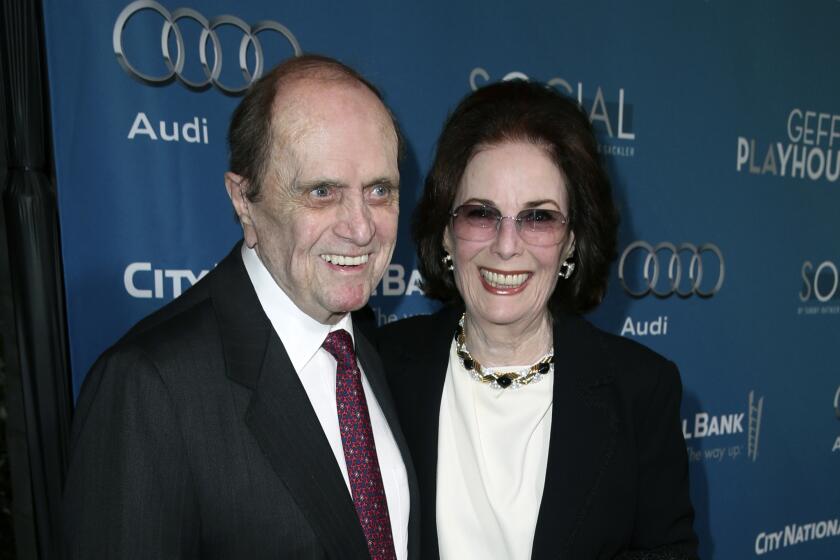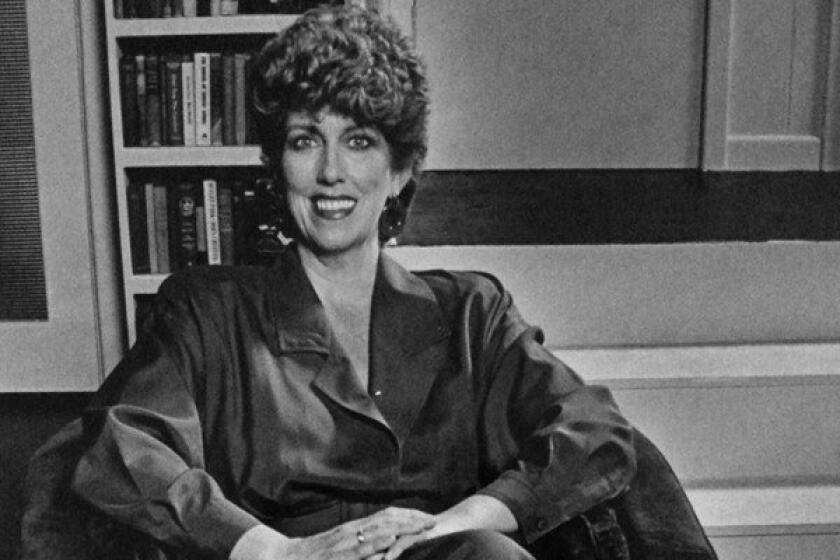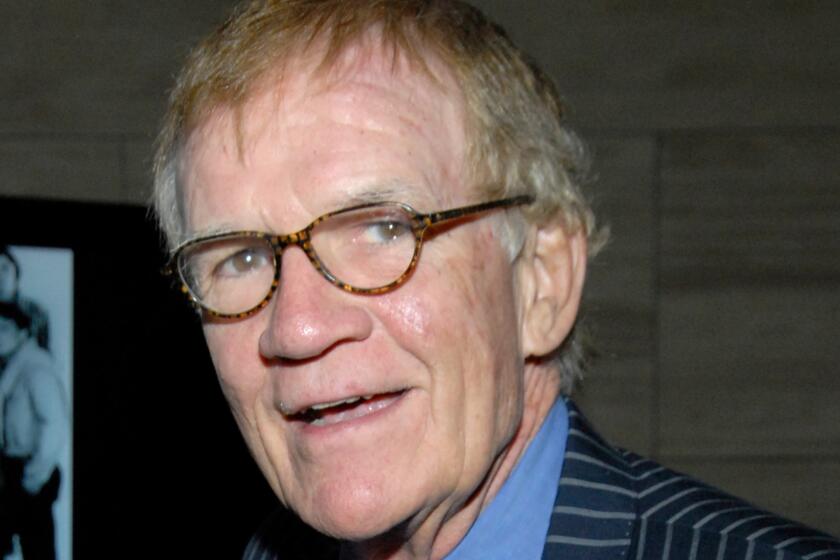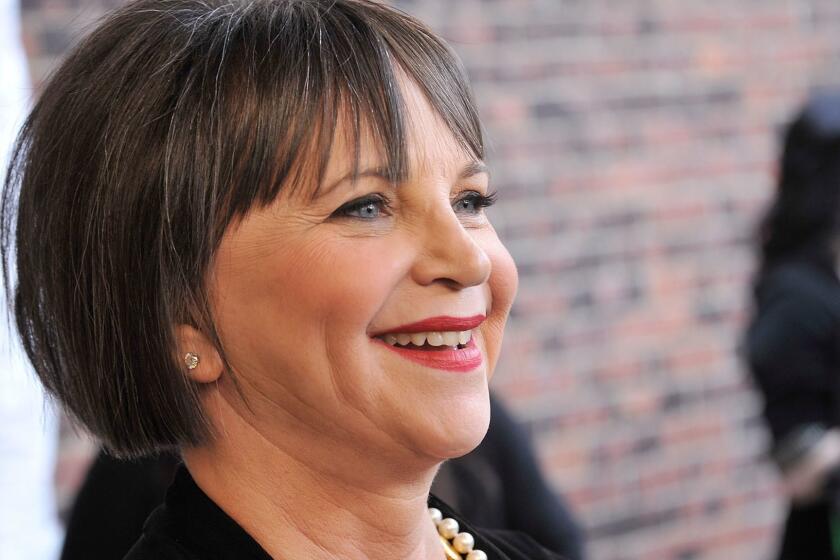Bob Newhart, deadpan comedian who became a sitcom and movie star, dies at 94
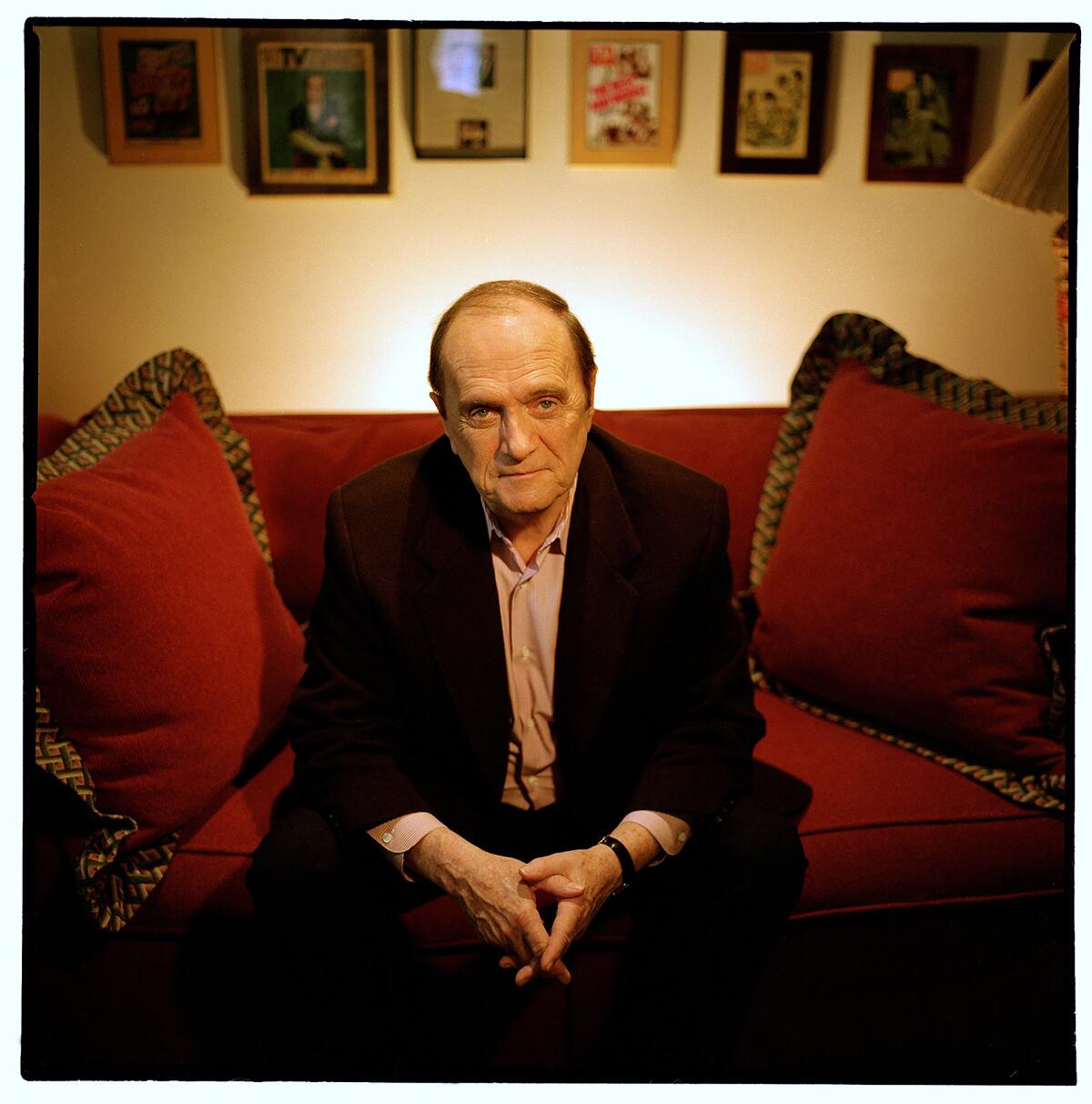
- Share via
Bob Newhart, the “button-down” stand-up comedy sensation of the 1960s who parlayed his low-key, Everyman demeanor and trademark stammering delivery into sitcom gold as the star of two classic TV series in the 1970s and ’80s, has died in Los Angeles.
Active until late in life as a guest star on some of prime time’s most popular shows, Newhart died after a “series of short illnesses,” his longtime publicist Jerry Digney told The Times in a statement Thursday. He was 94.
As the star of “The Bob Newhart Show,” which ran on CBS from 1972 to 1978, Newhart played the dry, deadpan Chicago psychologist Bob Hartley opposite Suzanne Pleshette as his wry, loving schoolteacher wife, Emily.
After six seasons, Newhart chose to end the show, saying six years was long enough and that he “didn’t want to limp off.”
Bob Newhart, who died Thursday, was outwardly, if deceptively, the picture of midcentury American normalcy — a blank canvas on which he painted his characters.
But he returned to situation comedy in 1982 with “Newhart,” a CBS series that ran until 1990 and featured Newhart and Mary Frann as the husband-and-wife proprietors of an authentic colonial inn in Vermont.
Like his previous sitcom, “Newhart” allowed him to do what he did best: react to his colorful cast of supporting characters.
“Without moving much, without shouting, Mr. Newhart can squeeze more out of an innocuous line than anybody else in the business,” New York Times writer John J. O’Connor wrote when “Newhart” debuted.
“His is not a world of wisecracks. He is a master of timing and delivery. There is no nastiness or hip trendiness. He is simply very funny.”
Ginnie Newhart, Bob Newhart’s wife of 60 years and the daughter of character actor Peter Quinn, died Sunday in Los Angeles after a long illness.
Newhart won his first acting Emmy Award in 2013 for a guest appearance on the CBS sitcom “The Big Bang Theory.” In all, he was nominated for nine Emmys.
A onetime Chicago accountant who began writing and performing comedy routines in the late 1950s, Newhart struck gold with his 1960 debut comedy album, “The Button-Down Mind of Bob Newhart.”
At the 58th Emmy Awards, the comedian was brought onstage in a giant, sealed capsule — with just enough air to last through a three-hour ceremony.
It climbed to No. 1 on the Billboard chart, the first comedy album to do so. And when the previously unknown comedian’s second album, “The Button-Down Mind Strikes Back!,” was released later in the year and shot to the No. 2 spot, Newhart had the top two albums in the nation.
At the 1961 Grammy Awards ceremony honoring the best of 1960, “The Button-Down Mind of Bob Newhart” won the album of the year award; “The Button-Down Mind Strikes Back!” won for comedy performance and Newhart was named best new artist.
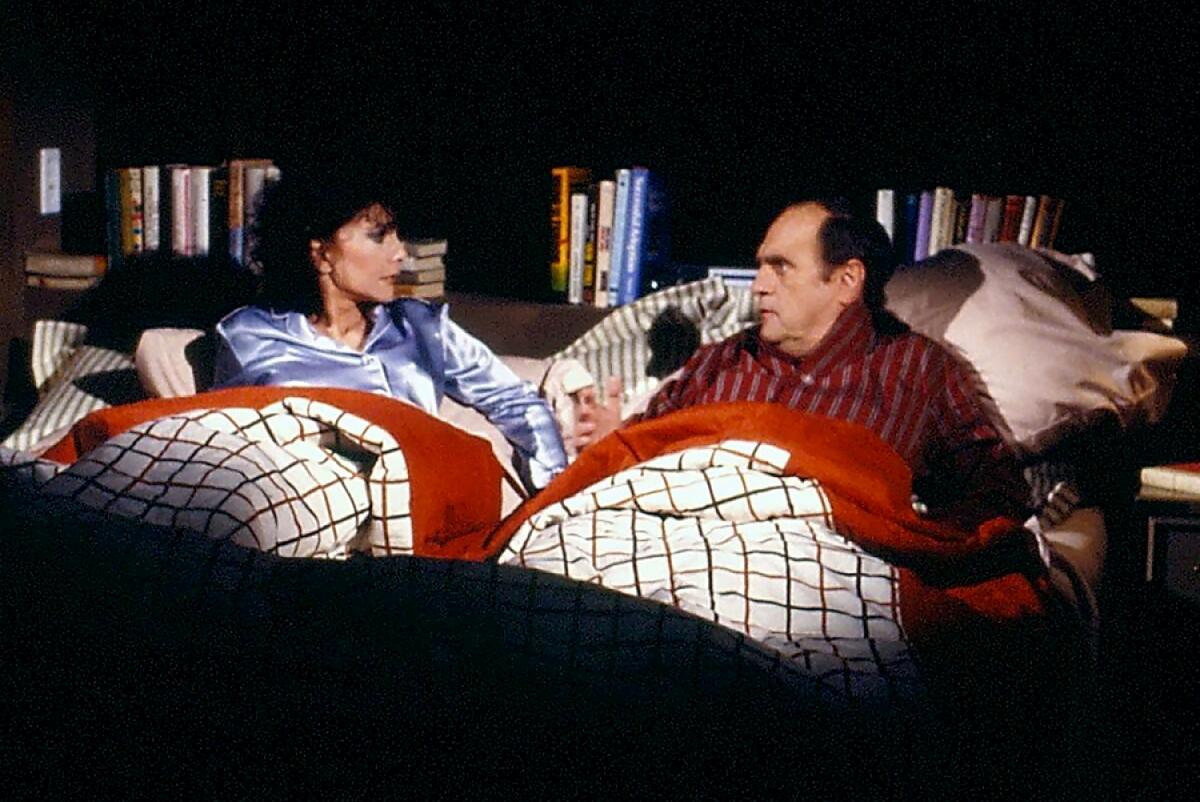
“If normalcy is a gimmick, Bob Newhart had one of stand-up comedy’s greatest hooks,” Gerald Nachman wrote in his 2003 book, “Seriously Funny: The Rebel Comedians of the 1950s and 1960s.”
Of all the revolutionary comedians of the era such as Mort Sahl, Lenny Bruce and Shelley Berman, Nachman wrote, “Newhart was the most Everyman of them all — nonethnic, nonabrasive, non-angst-ridden, non-you-name-it. ... His mild-mannered, quizzical nature worked like a sedative for the increasing craziness of the time.”
Like fellow Chicago comedian Berman, Newhart was best known in his early years for his comedy routines using one-sided telephone conversations.
In one, he tells his audience that his favorite movie is “King Kong,” in which the giant ape memorably climbs the outside of the Empire State Building. With that as his premise, Newhart portrayed a newly trained guard on his first night on the job at the Empire State Building, calling his supervisor at home to report a situation not covered in the training manual.
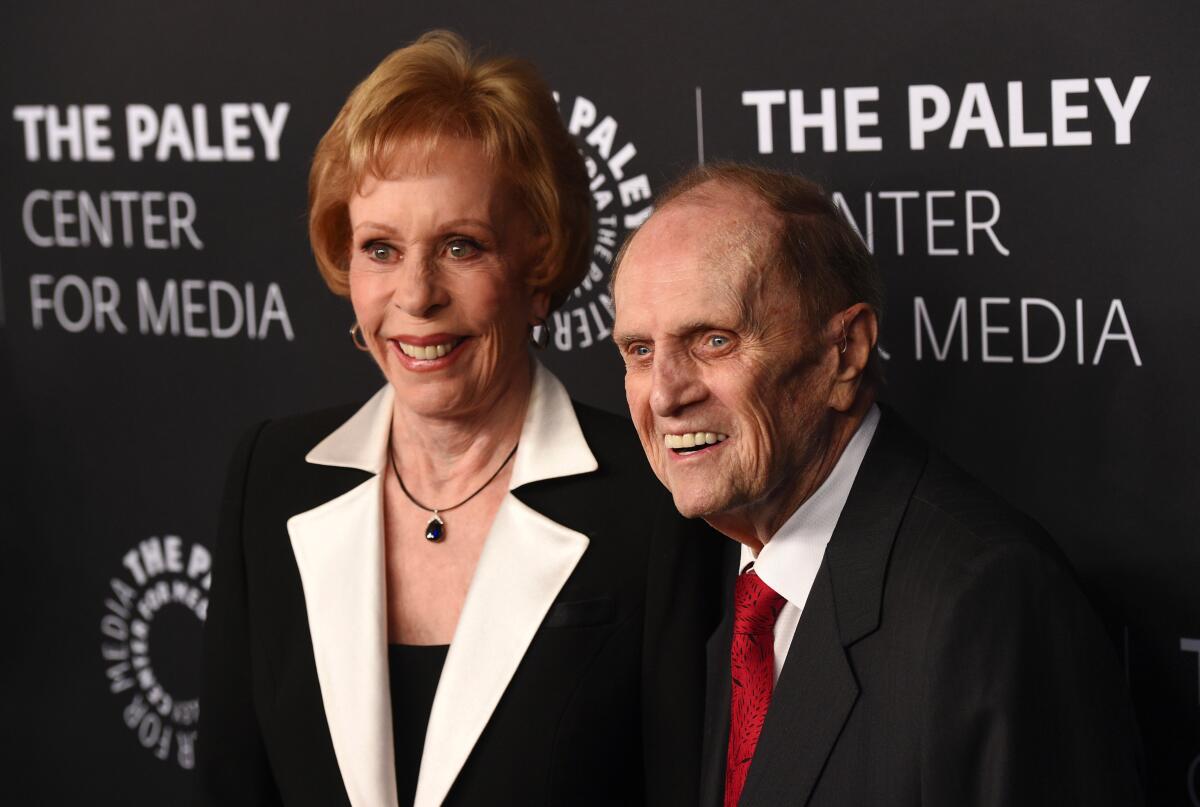
“There, there’s an ape’s toe sticking through the window, sir. Well, see, this isn’t your standard ape, sir. He’s, he’s between 18 and 19 stories high, uh, de-depending on, on whether there’s a 13th floor or not.”
In another routine, titled “Abe Lincoln vs. Madison Avenue,” Newhart imagined a phone conversation between Lincoln and his press agent just before the president delivered his famous speech at Gettysburg.
“Hi, Abe, sweetheart. How are ya, kid? How’s Gettysburg? ... Sort of a drag, huh? ... Listen, Abe, I got the note. Wha-what’s the problem? ... You’re, you’re thinking of shaving it off? ...
“What else, Abe? ... You changed ‘four score and seven’ to 87? ... I understand it means the same thing, Abe. Abe, that’s meant to be a grabber. Uh, Abe, we test-marketed that in Erie and they went out of their minds. ...”
This post has been updated. See below for details.
Newhart had never performed in a nightclub before recording his first comedy album live at a club in Houston. But in the wake of his overnight success, he began headlining around the country and appearing on the Jack Paar, Garry Moore and Ed Sullivan shows.
That led to his starring in his own comedy-variety series in 1961 for NBC, “The Bob Newhart Show,” which won an Emmy and a Peabody Award but lasted only one season.
In 1964, Newhart joined Carol Burnett and Caterina Valente as hosts of “The Entertainers,” a short-lived variety series.
Newhart made his film debut in 1962, playing an Army clerk-typist who provided comic relief in the World War II movie “Hell Is for Heroes.”
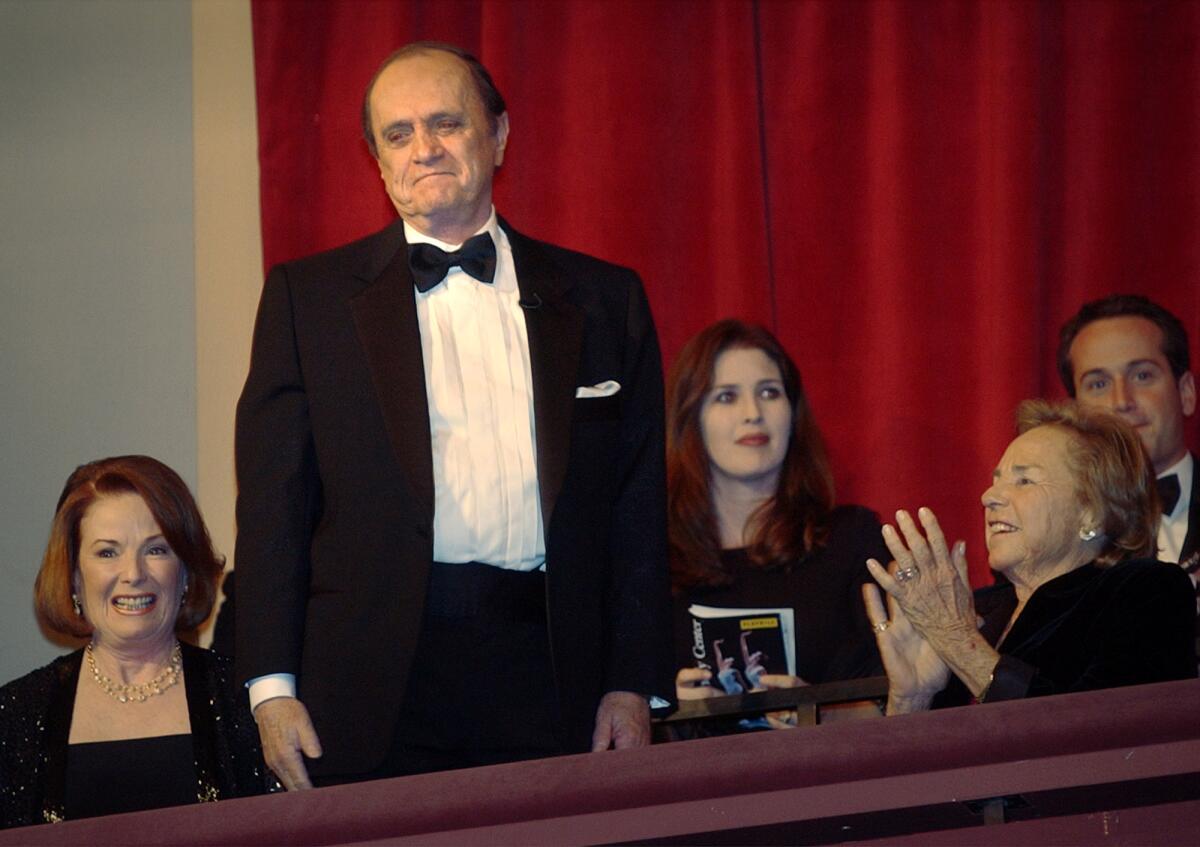
Other movies followed over the years, including roles in “Hot Millions,” “On a Clear Day You Can See Forever,” “Catch-22,” “Cold Turkey,” “First Family” and “Elf.” But Newhart had what he called “an undistinguished movie career.”
“I never had a patience for it,” he told Entertainment Weekly in 1997. “I need the immediacy of a live audience.”
Although he continued to perform his stand-up comedy act in Las Vegas and around the country well into the current century, series television is where he made his most lasting impression.
The surprise ending of the final episode of “Newhart” has been hailed by TV Guide and Entertainment Weekly as one of the funniest moments in TV history: Newhart’s New England innkeeper, Dick Louden, knocked unconscious by a golf ball and awakening in bed on the bedroom set from his previous TV series.
Suzanne Pleshette, the dark-haired, smoky-voiced actress who played Bob Newhart’s confident and sexy wife, Emily Hartley, for six years on the popular 1970s sitcom “The Bob Newhart Show,” has died.
“Honey, honey, wake up,” he says. “You won’t believe the dream I just had.”
After reaching over to turn on the light, Pleshette’s Emily Hartley turns to him and says, “All right, Bob, what is it?”
“I was an innkeeper in this crazy little town in Vermont ... “
Looking back years later, Newhart admitted some felt cheated by the ending, which was watched by more than 17 million viewers.
“They devoted eight years of their life and it turns out none of them existed,” he said.
Newhart, who received three Emmy nominations as lead actor in a comedy series while doing “Newhart,” believed the secret to his enduring success on TV was simple.
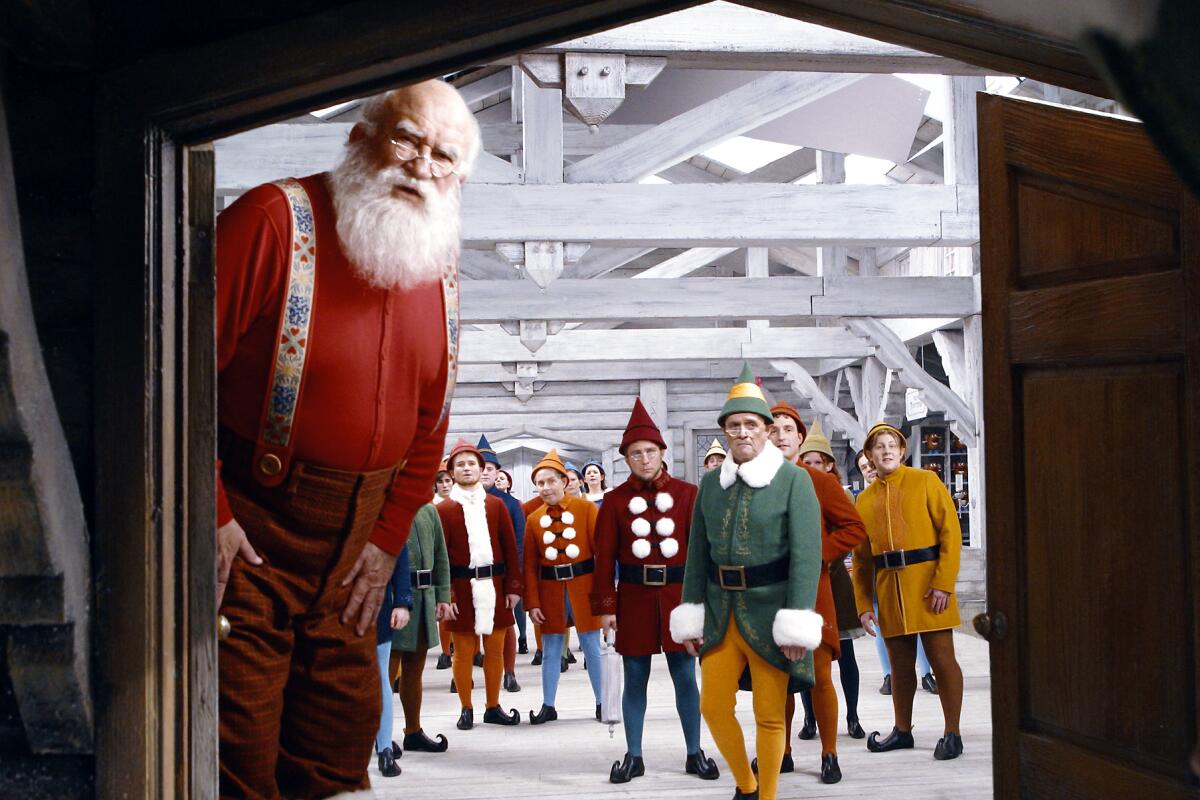
“I’ve often been told I pretty much play myself on television. And to a degree, that’s true,” he told the Rocky Mountain News in 2000. “I’m always the guy who considers himself the last sane man left on Earth. And it has worked for me.”
The second of four children of a middle-class Catholic family — he had three sisters, one of whom later became a nun — he was born George Robert Newhart in Oak Park, Ill., on Sept. 5, 1929, and grew up in the Austin area of the west side of Chicago.
Newhart — he was called Bob at home to avoid confusion with his father, George, who worked for a plumbing and heating contractor — first realized he had a flair for generating laughs at age 10.
Playing a parlor game, he drew a card that asked, “Do you think you have an artistic temperament?”
To which he responded: “I can’t even draw.”
“It doesn’t sound very funny now, but everyone laughed, and I fell in love with hearing that,” he told the Chicago Tribune in 2002.
Jack Riley, who played a counseling client on “The Bob Newhart Show” in the 1970s and also voiced a character on Nickelodeon’s animated “Rugrats,” died Friday.
After earning a bachelor’s degree in management at Loyola University, he enrolled in Loyola’s law school but left after a year and a half. He spent his evenings performing with a local theater group called the Oak Park Players. As he explained in his 2006 book, “I Shouldn’t Even Be Doing This!”: “Something had to give, and it was law school.”
Drafted into the army in 1952, he spent his two-year hitch assigned to a personnel management team on the West Coast. He then returned to Chicago and found work as a bookkeeper.
“To pass the time during the tedious afternoons of balancing petty cash,” he wrote in his book, “I began swapping absurd stories on the telephone with my friend Ed Gallagher, who worked in advertising.”
Newhart would, for example, call Gallagher and identify himself as the plant manager of a yeast factory reporting a fire to the owner.
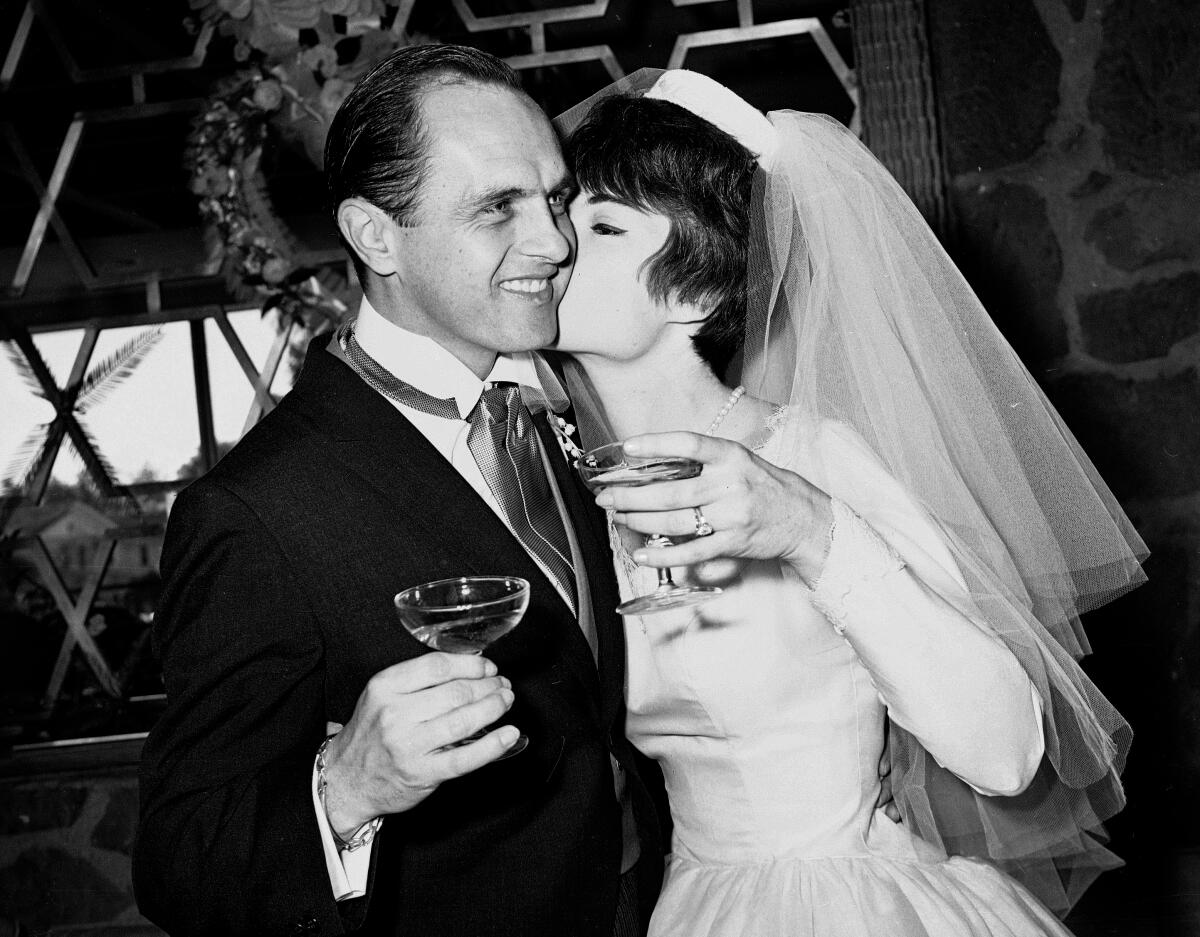
“Hold on, sir. I have to put you on hold while I run up another floor. The yeast is rising. ... Sir, are you still there?”
Newhart and Gallagher recorded extended versions of their phone routines and mailed demo tapes to radio stations around the country. But they abandoned the money-losing venture after enlisting only three stations.
Newhart, who was still living with his parents and working part-time jobs, had no ambition to become a stand-up comedian. But, he later said, he was interested in seeing whether he could make a living being funny.
Newhart’s break came when his friend Dan Sorkin, a popular Chicago disc jockey, arranged for him to play some of his comedy tapes to visiting Warner Bros. Records executives.
Cindy Williams, who played upbeat Shirley Feeney to Penny Marshall’s wise-cracking Laverne DeFazio in the 1970s sitcom ‘Laverne & Shirley,’ has died.
“He didn’t even have to finish the Abraham Lincoln thing for it to be clear. He was an original, a real talent,” James Conkling, president of Warner Bros. Records, recalled in Jeff Sorensen’s 1988 biography, “Bob Newhart.”
Newhart, as Nachman pointed out in his book, “became a star in months, the first comedian manufactured solely out of vinyl.”
In 1961, Newhart’s comedian pal Buddy Hackett set him up with a blind date with Virginia Quinn — Ginnie — the college-student daughter of character actor Bill Quinn who was working part-time as an extra at Paramount. She and Newhart were married two years later.
Late in life, Newhart returned to stand-up and found it life-renewing.
“What I’ve learned is: I love the danger,” he told the New York Times in 2019. “This thing I thought I hated all my life, that’s why I was doing it. If the show is at 8, and it’s 6, what will I be doing? Pacing. After 60 years, still pacing. I like that feeling.”
Newhart is survived by four children, Jennifer, Courtney, Timothy and Robert, and numerous grandchildren. His wife of 60 years, Virginia “Ginnie” Newhart, died in 2023.
More to Read
The complete guide to home viewing
Get Screen Gab for everything about the TV shows and streaming movies everyone’s talking about.
You may occasionally receive promotional content from the Los Angeles Times.

